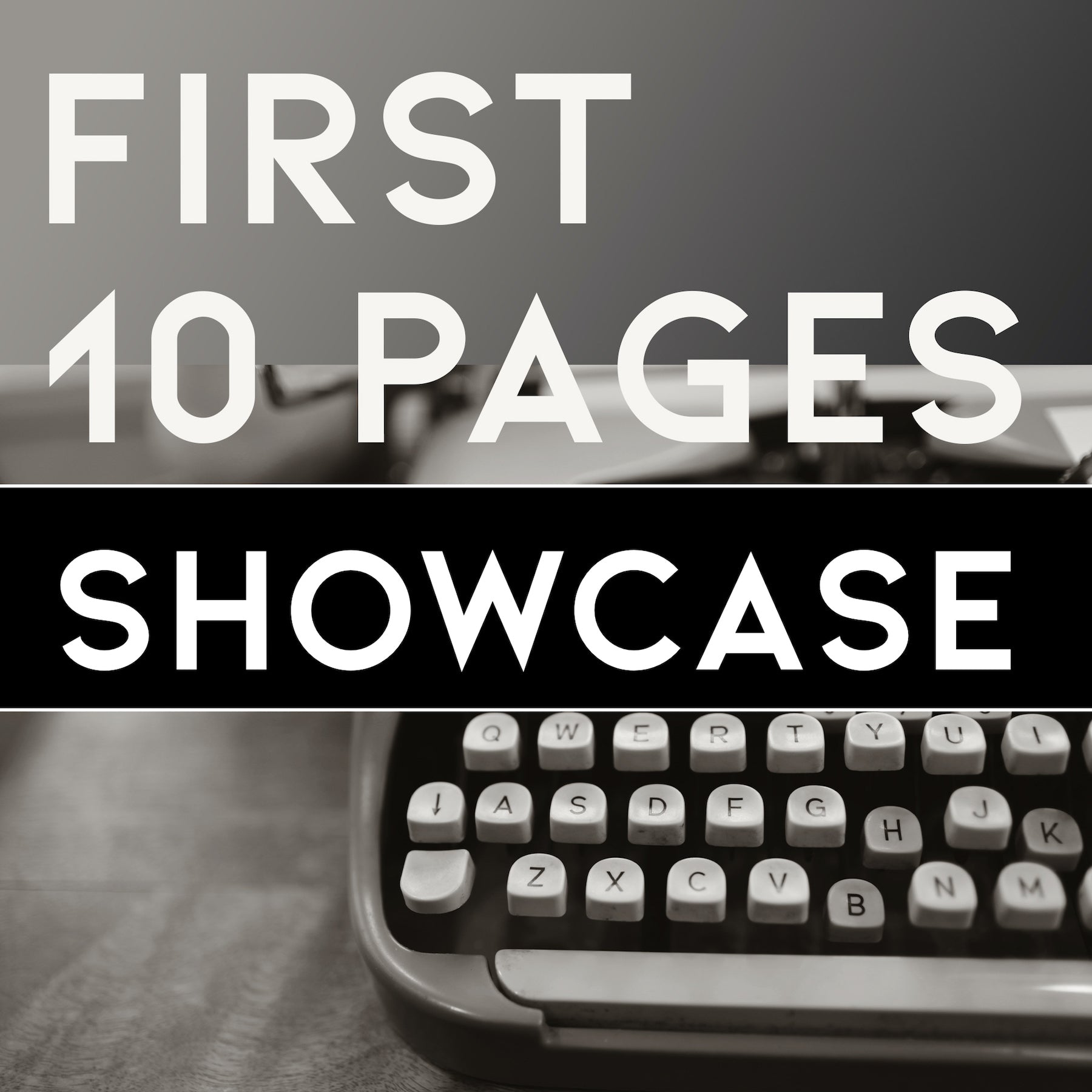
Agents & Book Deals: A Guide for Authors
Updated November 2024
Contents
Is it Time to Work with a Literary Agent to Sell Your Book?
How to Find a Literary Agent to Represent Your Book
How to Select a Literary Agent to Pitch - Who is Right for You
10 Steps for Successfully Meeting Literary Agents at Conferences
Do’s and Don’ts Checklist of Query Letter Writing
Tips for Successfully Approaching Literary Agents and Submitting Your Manuscript or Book Idea
5 Things Not to Do When Submitting Your Book Pitch to a Literary Agent
5 Tips for Submitting Additional Requested Material to a Literary Agent
Tips When Waiting for a Response from a Literary Agent... plus When to Follow Up
How to Avoid Literary Agent Scams and Ensure Credibility
How to Interview a Literary Agent Who Offers to Represent Your Book (20 Questions to Ask)
The Book Deal: Selling & Publishing Process
How to Maintain a Positive Working Relationship with Your Literary Agent
Understand Book Advances & Royalties
The Four Most Important Elements of Your Book Publishing Contract
When to Consider Ending the Author-Agent Partnership
Is it Time to Work with a Literary Agent to Sell Your Book?
A literary agent acts as an author’s representative. The agent’s job is to find a publishing house to buy your book idea or manuscript and negotiate the contract and subsidiary rights on your behalf.
Here’s why you don’t want to simply bypass the literary agent and approach publishers directly with your manuscript or book idea…
First, the big publishers ONLY accept pitches from a literary agent. You can’t just send your query letter, manuscript or book proposal to a major publisher for consideration. You need an agent to do it for you.
Plus, only the big publishers offer larger advances. You won’t receive a large advance from a smaller publisher (and sometimes you won’t receive any advance from a smaller publisher!)
Literary agents sell between 80% and 90% of books to publishers. You have a much better chance of acquiring a book deal when you have an agent representing you to publishers.
Acquiring a literary agent as your representative provides many benefits:
- An agent understands which editors would be interested in your work and can focus on sending your material to them.
- Editors prefer agent submissions.
- Agents ensure your manuscript or book proposal is read. Most large publishing houses only accept submissions from agents, and that is the only way your manuscript or book proposal has an opportunity to be read.
- An agent can ensure a better deal and create a bidding war. Agents will get your manuscript or book proposal seen by the maximum number of publishers. Without an agent you will not know what other publishers may offer.
- Agents understand publishing contracts and are experienced negotiators. Publishing contracts are written for the benefit of the publishing house, not the writer. Without an agent, you have no leverage to negotiate better terms.
- An agent acts as a buffer. The publishing industry is a business. An agent acts as buffer between you and the business issues so you can maintain a creative relationship with your editor and focus on writing.
- An agent will ensure you receive better subsidiary rights. Subsidiary rights are secondary rights that can be sold with a book. They include translation rights, audio rights, film rights, book club rights, serial rights, foreign rights, and additional rights.
- An agent has contacts to help your career. An agent’s network can help you land endorsements and forewords from other authors and experts, publicity tie-ins, and speaking opportunities.
- An agent is your advocate. Editors may have 30 titles to edit each year and are forced to prioritize them. Titles with agents take priority at publishing houses and receive more attention from editors than books without agent representation.
If you want to acquire a traditional book deal with a major publisher and you have a well-crafted and polished manuscript or book proposal, then it’s time to work with a top literary agent.
How to Find a Literary Agent to Represent Your Book
There are many avenues available to find a literary agent. Most authors utilize several resources to locate potential agents.
Referrals. Referrals are one of the best avenues for finding and contacting an agent. Agents respect and value referrals from an editor, author-client, bookseller, writing expert, or another agent. Ask your associates, friends and network if they can refer you to an agent.
Events. Literary conferences, seminars, retreats, book festivals, and workshops provide opportunities to meet literary agents in person.
Directories. Each year several literary agent directories are published. Each guide provides detailed information on individual agents, which include the literary agency where the agent works, his contact information, the types of writing he represents, and his submission guidelines. Additional information may also be included such as recent sales, number of annual sales, professional memberships, and total years in business.
The Guide to Literary Agents is published by Writer’s Digest Books and contains a listing of more than 800 literary and script agents. The book provides an index of agents categorized by the genre they represent, which allows you to quickly and conveniently find the agents who represent the type of books you write.
Jeff Herman’s Guide to Book Publishers, Editors, & Literary Agents. This directory lists 200 agents who are members of the Association of Author’s Representatives (AAR), and offers additional details that provide a glimpse of the agents’ personalities.
Literary Market Place is the most comprehensive directory available. Weighing close to 10 pounds, it has more than 2,000 pages of listings along with a hefty price tag of more than $400. An online version of the directory is also available.
Internet Sites. The array and magnitude of information available via the internet makes it easier than ever to find literary agents for your book. Forums, blogs, online magazines and directories, and search engines offer an abundance of resources.
Publisher’s Lunch offers a free daily and weekly newsletter that reports on the latest publishing deals and news, including information on the agents involved with the deals and descriptions of the books that sold.
Publisher’s Marketplace offers news about the publishing industry as well as a “Search Members” link to obtain contact information for individual agents and literary agencies, and a listing of the Top 10 Most Visited Agents. The site also offers a paid membership service.
Publishers Weekly online provides articles about the book industry, includes a “Search” box to obtain information on literary agents and agencies, and presents a weekly “Deals” column with details about major book deals. They also offer PW Daily, a free weekly newsletter delivered to your email inbox. You can subscribe to the virtual edition of Publishers Weekly magazine (for an annual fee) to obtain access to more articles, news, and deal listings.
Writer’s Digest is filled with articles and interviews. They also offer an annual list of the 101 best websites for writers and a free email newsletter.
Agent Query provides a free, searchable database of agents and agency information.
QueryTracker offers a free list of agents, but the exceptional value of this website is found in the research they amass and make available. QueryTracker gathers information that is input into their database by authors submitting queries to agents. This information includes the name of the agent who is pitched, the word count of the manuscript, the genre of the book, the date of the response, the type of response, and the final outcome.
The collected data reveals important information about specific agents: the overall number of queries sent to each agent and their accept/reject rates, the genre-specific accept/reject history of an agent, and an agent’s average response time. For an annual fee, the website also offers even more details about specific agents.
Agents’ Blogs. Agents have their own blogs where they write posts about the publishing industry, their expectations, what they are looking for, their clients’ book releases, recent sales, and how to submit a pitch.
Social Media Sites. LinkedIn, Facebook, and Twitter provide opportunities to expand your network, grow your contact list, and learn about the publishing industry. Join groups and follow influential agents and publishers.
The Association of American Literary Agents consists of reputable, experienced literary agents. To become a member, agents must have sold 18 books within 10 months and adhere to strict ethical guidelines. The website provides a list of members and information on how to contact them.
How to Select a Literary Agent to Pitch - Who is Right for You
Each agent has different skills, experience, and strengths, and specific types of writing he or she represents. Prior to approaching and pitching an agent, you need to carefully conduct research to determine which ones are the best fit for your style, personality, needs, and genre.
Questions to Consider When Evaluating which Agents to Approach:
How important is an agent’s experience?
An effective agent is one who has established strong contacts with publishers and editors, understands how to negotiate contracts and sell subsidiary rights, and who can work well with writers.
Would you prefer to work with a large, medium, or small agency?
Large agencies focus on commercial properties with additional revenue potential. Small agencies tend to be more receptive to first-time writers and projects that are less profitable.
Does the agent represent your genre and does the agent represent your specific sub-category within your genre?
It is essential to only approach agents who represent your genre and sub-category.
How many deals has the agent made in her career?
An agent who has sold two books has less experience and sales ability than an agent who has sold 200 books.
How many deals has she brokered recently?
An agent who has only sold 25 books in her career, but 15 of them were sold in the past year, may be a better choice for representation than an agent who has sold 200 books in her career, but only sold one within the last 12 months.
What kind of publishers has she brokered deals with?
Ideally you want to work with an agent who brokers most of her sales with major publishers. Major publishers pay higher advances, print more copies of your book, acquire the best distribution, and have larger promotional budgets.
What kinds of advances has she negotiated?
Advances vary widely depending on the type of book, which publisher bought it, and the size of the author’s platform. Advances range from $5,000 to $500,000. If the agent you are considering consistently acquires advances in the lower range, she may lack experience or negotiating skills.
Do you recognize the authors the agent represents?
If you are assessing the viability of a new agent, you may not recognize the names of the authors she represents. But if the agent is well established you should know a few of the writers on her client list.
Are you a good match for the agent’s client list?
Are the agent’s clients synergistic with you and your work?
Is the agent receptive to new clients and new writers?
You need an agent who is actively looking for new clients.
10 Steps for Successfully Meeting Literary Agents at Conferences
Conferences, seminars, retreats, book festivals, and workshops provide an opportunity to meet an agent in person. Agents expect writers to approach them at these events. Some conferences even schedule sessions for authors to pitch to agents. The goal is to connect with agents and leave them with a positive impression of you and your work for when you submit your pitch package in the future. Some agents may even ask you to send them your manuscript or book proposal.
Introducing yourself to agents who are a good fit for your writing increases your chances of acquiring an agent; it lays the foundation for a future relationship. The benefits of meeting a literary agent in person are: You create enthusiasm for your project before the agent has even read it; the agent gets an idea of your potential promotion by the way you present yourself and your work; and when you submit your query, it will stand out among the masses of letters they receive daily.
Most important, nothing replaces a one-on-one connection and the chemistry it can generate. Attending conferences and other literary events is a strategy that produces results.
You can follow these 10 steps to make the most of your conference experience:
- Review the conference website to determine the agents who will be attending or speaking and create a list of the agents you wish to approach.
- Create a plan of how you will spend your time at the event. Prioritize what you know you must do and what you would like to do if time permits.
- Complete your pitch package or manuscript prior to attending the convention so you will be able to send the material immediately upon returning home from the event.
- When you arrive at the conference, study the map and the program to better navigate the terrain.
- Plan to attend both educational and social events and walk the exhibition floor if one is presented. Collect business cards from everyone you meet.
- Determine the best time to approach your pre-selected agents – this may be early morning, after a round-table or seminar presentation, or at an opening night cocktail reception.
- Prepare and practice a pitch speech. Create different versions of your pitch: a 15-second pitch, a one-minute pitch, a two-minute pitch, and a three-minute pitch. Remember, an agent’s time is valuable. Keep your speech simple, exciting, and compelling. Leave the agent with a desire to know more about your story. Pitch the idea first and then follow with your credentials, accomplishments and platform if time allows.
- Be prepared to answer follow-up questions.
- Do not ask an agent to read your work or tell him that you will be sending it to his office tomorrow. Wait for an agent to invite you to send your work.
- As soon as you return home from the conference, send your query letters to the agents who expressed interest. Be sure to mention in the letter that you met them at the conference. Do not send your manuscript or book proposal unless invited to do so.
Do’s and Don’ts Checklist of Query Letter Writing
Agents review thousands of queries each year searching for talented writers and material to present to publishers. Yet agents say they reject 99% of the pitches they receive because the writers fail to:
- Show the agent that they are capable of quality writing
- Create excitement for their topics or stories
- Be succinct – providing the information in as few as words as possible
- Convey that they are professional authors who understand what an agent wants
To help you achieve the 1% status, here is a checklist of query letter “do’s and don’ts” compiled from professional agents’ requests.
- Do get to the point. Agents are busy people. They only have a limited amount of time to consider your project. If you ramble on about non-consequential things, such as “I spent two months crafting this letter hoping to get it just right after spending six years writing my manuscript. If I do not find an agent soon, I think I will just give up and go back to washing dishes at the local diner…”, you will alienate the agent. If you cannot write a tight, pertinent pitch, how will you write a succinct book?
- Do follow the correct format and keep the letter to only one page. The format of your letter demonstrates you are a professional author who understands what is required. A pitch that is longer than one page (or two at the very most) stands a good chance of never being read.
- Do not compare your work to known authors. Positioning your book alongside other published works in style, subject, or readership is acceptable but do not compare the quality of your writing to established authors. Stating “I am the next J.K. Rowling” will make you appear conceited, not confident. Your writing will speak for itself. There is already one J.K. Rowling, and there is only one you, so resist comparing yourself and your writing to other authors.
- Do not send your letter certified mail. Doing so may annoy the agent.
- Do mention that you have queried multiple agents. It is professional and demonstrates you understand how the business works.
- Do not discuss money, contracts or film deals. Doing so makes you appear amateurish and aggressive. Your job at this point is to capture the agent’s interest for your work. Payment, royalties, subsidiary rights and other contract details are negotiated once a publisher makes an offer to purchase your book.
- Do not introduce yourself by starting the letter with “My name is…”. Your name is included in your contact information and with your signature.
- Do not use the term “novel” for a nonfiction book. Novels are exclusively fiction.
- Do not state that you are writing a query or seeking representation. If an agent is reading your letter, he knows it is a query and that you are seeking representation.
- Do include information about a previously published book if it sold well. Agents say it is easier to place a debut book than it is a book by an author who has a mixed sales track-record. A previously published book is only an advantage if it sold extremely well. If it did, then mention it, but keep the focus of the query on your new project.
- Do not mention that your family and friends love your book. The agent does not care what non-writers think about your book. Your work should speak for itself.
- Do not submit a query letter if you have not finished crafting the manuscript or book proposal. An agent cannot evaluate a project if the manuscript or proposal is not complete and available to review. An agent wants to be able to shop the book or idea to a publisher immediately and will not wait for you to finish the required material.
- Do not demand that the agent read your work or threaten to take it elsewhere. Threats and demands immediately identify you as an amateur and someone who will be difficult to work with. Stating in a query letter that if the agent does not take you on as a client that she will be missing out on the next bestseller does not encourage an agent to consider you as a client, instead it demonstrates how unprofessional the author is and leads to the agent dismissing the pitch completely.
- Do not submit a query that does not fit the agent’s requirements for genre, word count, or format. Do not waste your time, or the agent’s, attempting to convince her to represent your book if she does not represent that genre simply because you think it is a great book. It may be, but agents specialize in specific titles and have cultivated resources and expertise in selling those particular titles.
- Do not pitch multiple submissions to an agent. Simultaneous submissions, querying more than one agent at the same time, are acceptable, but multiple submissions, pitching more than one project to the same agent at the same time, is considered unprofessional.
Tips for Successfully Approaching Literary Agents and Submitting Your Manuscript or Book Idea
Having completed your manuscript or book proposal and query letter, you can now use the prioritized agent file you created to begin approaching agents.
Approaching Agents
Acquiring an agent has as much to do with thorough research as it does with approaching a high number of agents. The more agents you approach, the better chance you have of successfully finding an agent. Your agent file should have a minimum of 40 to 50 agents to approach, each ranked in order of their desirability based on your specific requirements.
To make the submission process manageable, you will want to divide your list into groups of eight to ten agents to approach. For example, if you have a list of 40 agents divided into groups of eight, you will have five groups of agents to approach. Approach your dream agents in Group 1 first. If you do not land an agent in the first round of submissions, do not become discouraged - simply go on to the next set of eight to ten agents to pitch.
Create a file to keep track of when each agent was contacted, when you expect to receive a response, the result of the response, and any follow-up notes. It should not take any longer than four weeks to receive an initial response to your query letter. If you have not received a response from an agent within one month and he is one of your “dream” agents, consider submitting a brief follow-up note. If you still do not receive a response, move on to the next set of agents to query.
Simultaneous Submissions
Submitting query letters to more than one agent at the same time is standard practice in the literary world, and it benefits the writer. An agent may take two to four weeks to review your query letter and respond. The response will either be a rejection letter or a request for further material, in which case the agent will need an additional four-to-eight weeks to review the proposal or manuscript. If you only query one agent at a time, it could take years to find an agent. Querying multiple agents simultaneously should land you an agent within six months, as long as you are approaching the right agents (which you should be based on your extensive research) and pitching them effectively.
The Submission Process
It is imperative to follow each agent’s submission guidelines. You can find agent’s specific guidelines on their websites, and in their online and print directory listings. Agents say the number one reason they reject a submission is due to the writer not following the guidelines. Why risk having your query discarded or dismissed because of a technicality?
It is easy to follow instructions and will greatly increase the chance your query will be considered. It shows you have taken the initiative to research the agent and are conscientious of the agent’s time, tastes, and needs. Many agents feel a writer who cannot follow directions during the pitching process will be a difficult client, so they will not even bother reading the pitch.
Requests for Exclusivity
If an agent is interested in your project, he may ask to read your manuscript or book proposal on an exclusive basis. A request for exclusivity means the agent wants to be the only one allowed to read and consider your work. He is asking that you do not share your proposal with any other agent. This can create a dilemma for an author, as it will put the submission process on hold. However, receiving an exclusivity request is a positive sign that an agent is serious about representing you.
Most writers handle requests for exclusivity by placing a limit on the time the agent has to review the material, so they are not waiting indefinitely for a response or holding up subsequent requests from other interested agents. Let the agent know that you are giving him exclusivity for a set period of time, usually two-to-four weeks for a book proposal and four-to-eight weeks for a manuscript. If during the exclusive time period you receive a request to review your book proposal or manuscript from another agent you queried, you will have to wait until the exclusive time period is over before sending your material to the next agent. The best policy is to be honest and explain the situation.
5 Things Not to Do When Submitting Your Book Pitch to a Literary Agent
- Never send your book proposal or manuscript with your query letter unless the agent’s guidelines specifically request it. Some writers believe that since they are pitching the agent anyway, they might as well submit the book proposal or manuscript along with their query letter and the agent will be so impressed with their writing that it will make the difference in landing representation. It will make a difference - by landing the writer’s submission in the trash. Agents barely have time to read a one-page query letter; if they receive an unsolicited proposal, that submission goes at the bottom of the pile to be read last, or worse, to never be read at all.
- Do not call the agent to pitch your idea, or to tell him that you are sending the query, or to ask if the agent received your query. An agent will consider such behavior too aggressive; agents want clients who will be easy to work with, not writers who will be pushy and demanding of their time.
- Do not show up at the agent’s office unannounced. Dropping off a query letter in person is probably the worst thing a writer can do to sabotage his chances of acquiring an agent. Always adhere to the agent’s submission guidelines. Violating requests or exhibiting aggressive behavior turns agents off.
- Do not include gifts or props with your submission. Including an object that ties in with your book’s theme may seem like a good idea, but it is not. Do not send a pen engraved with the title of your book, or a cupcake along with your pitch for a romance novel. These items will not help differentiate you from the crowd; instead they make a writer appear gimmicky, amateur, and desperate.
- Do not use fancy stationary. The publishing industry is a business. Agents want to know the author understands this. Always maintain a professional businesslike presentation.
5 Tips for Submitting Additional Requested Material to a Literary Agent
When an agent requests additional material, such as your manuscript or book proposal, it is important to remain as professional and responsive as when you sent the initial query.
1. Send the requested material immediately.
Agents report they are perplexed when authors send material weeks or even months after it has been requested. If an agent is intrigued enough by your query to want to learn more about your nonfiction project, send it immediately. Do not wait. If you do you risk the agent losing interest, forgetting about you and your book, or deciding that you are unprofessional and not worth representing.
2. Send the requested material via priority delivery service.
The purpose of using a priority delivery service is to ensure the material arrives in a timely manner to the right destination (on the agent’s desk and not in the assistant’s “slush pile”).
3. Include a copy of the agent’s request.
Often an intern or assistant will open the package. Inserting a copy of the agent’s request for your material, along with a copy of the original query letter or a brief cover letter, indicates the material was requested and ensures it will be delivered directly to the agent for review.
4. Send only what is requested.
Be sure to send exactly what the agent has requested. Remember, following an agent’s instructions demonstrates that you are a professional author who is easy to work with.
5. Consider making requested revisions.
Sometimes after reviewing the additional requested material, an agent will respond with a request asking you to make specific changes to your proposal and then to resubmit it. You will need to consider whether you wish to make the changes, if the revisions will benefit the material or project, and if you wish to continue to pursue possible representation from the agent. When an agent takes the time to comment on your material, it is usually because he feels there is good potential for selling the book and he is seriously considering representing you. If you feel comfortable with the agent’s requests, then it may be in your best interest to make the revisions and resubmit the material for a second consideration.
Tips When Waiting for a Response from a Literary Agent... plus When to Follow Up
The amount of time you will need to wait for a response after submitting your pitch will differ for each agent. During this time, you may receive rejection letters, continue pitching to other agents, follow up with agents who fail to respond, and receive requests to submit additional material.
Use Your Time Wisely
While waiting for a response to your query letter or book proposal submission, continue to prepare for your career as an author. You can use this waiting period to:
1. Begin formulating your next book idea.
Every author and literary agent I have interviewed agreed that the number one thing every writer needs to do while waiting for a response is to outline his or her next book idea.
2. Continue to build your platform.
Increase your social networking activities, expand your blogging to include guest posts on other writers’ sites, author articles, and make yourself available as a resource for reporters, journalists, and podcast/radio show hosts as a way to garner additional media exposure.
3. Prepare your next set of query letters.
When you have a stack of query letters prepared and waiting to be sent, any time you receive a rejection letter from one agent you will not have to waste time dwelling on the disappointment because you are ready to contact the next one - and increase your chances of becoming published.
4. Improve your writing skills.
The more you write, the better writer you become. The better writer you are, the more valuable, viable, and marketable your material will be. Devote more time to writing each day.
When to Follow Up
Most agents’ submission guidelines, available on their websites and in print listings, outline the agent’s average response time for queries and books proposals. This should give you a good idea of when to expect to hear from a particular agent. Average response times are:
- Query letter: two to four weeks.
- Book proposal: four to six weeks.
- Manuscript: four to eight weeks.
If you have not received a response from an agent within two to three weeks past the date of his or her listed response time, you should follow up with the agent. For follow-ups to book proposals and manuscripts, it is perfectly acceptable to call the agent and inquire if he or she has had time to review the material. For follow-ups to queries, you may send a brief note along with a copy of the original query letter.
How to Avoid Literary Agent Scams and Ensure Credibility
Unfortunately, unscrupulous people exist in any industry, and the literary world is no exception. Anyone can call himself a literary agent, buy business cards, accept writer submissions, and take advantage of unsuspecting authors. When you have an understanding of how legitimate literary agents operate you will be more able to protect yourself from predators. It pays to be knowledgeable and stay aware.
Here is a list of “agent” practices to avoid:
- Inappropriate fees. Legitimate literary agents do not charge fees to read writers’ proposals. Nor do they charge critiquing fees, retainers, or upfront office administrative or marketing fees.
- Referrals to editing or book doctoring services. A fake literary agent may tell you she likes your book idea but that it just needs some work and for a fee she can edit it for you or refer you to a book doctor. In reality, this is a scam to collect your money without improving the work. If a so-called “agent” offers this service, move on to another agent.
- No sales record. Professional literary agents will discuss their recent sales with a prospective client. They should be able to tell you how many books they’ve sold, what types of books they sold, and to whom they were sold.
- Refusing to answer questions. A good agent will respectfully answer your inquiries and allow you to make the final decision concerning their offer of representation. Stay away from an “agent” who refuses to answer your questions, is rude or bullying, or pressures you in any way.
- Sending a generic acceptance form letter. When a legitimate agent offers to represent a client, she takes the time to make a personal telephone call or send a note to the author. A professional agent would never remit a representation offer using a generic form letter containing wording that could apply to any book - only con artists do that.
- Unprofessional contract terms. Avoid agents with contracts that include perpetual agency clauses, claims on client’s future commissions if the agency has no part in selling the property, billing clients for normal business expenses, provisions that ask for upfront payments, clauses for publishing through print-on-demand, or contracts that offer no advance.
- Promises of publication. A literary agent, regardless of how well established he is, can never guarantee he will sell your book. Unsavory “agents” use promises of publication to entice trusting writers.
- Lack of contacts. If an agent lacks publishing contacts, that is a red warning flag. Obviously, established agents have extensive networks of contacts, but even new agents are not new to publishing and have lists of contacts. Research an agent’s background and experience. Consider asking the agent to list a few editors he thinks may be interested in your work and why he selected those particular contacts. If he cannot answer that question, find another agent.
If you have been a victim of a scam or were misrepresented by an unscrupulous agent, consider contacting the following resources for assistance:
- The Federal Trade Commission Bureau of Consumer Protection investigates fraud. You may file a complaint on their website at ftc.gov.
- Volunteer Lawyers for the Arts (vlany.org) offers guidance and answers to your legal questions.
- The Better Business Bureau’s website (bbb.org) allows you to search for information on a business as well as file a complaint.
- Contact your state’s attorney general via usa.gov/state-attorney-general.
How to Interview a Literary Agent Who Offers to Represent Your Book (20 Questions to Ask)
When an agent is excited to represent you, he or she will often telephone you to make an offer or send you a personal note. Every writer knows that finding an agent can be a difficult process. Many authors simply sign a contract with the first agent who offers representation. Selecting an agent is a serious business decision and should be carefully considered. You want to ensure the agent is the best one for your book and the right match for your writing career.
Many of your potential questions about your prospective agent (such as the size of the agency, how many books she’s sold in the past year, her specialties, the different publishers she has worked with, and how long she has been in business) will already be answered before you receive an offer of representation (you would have garnered this information from the research you conducted prior to approaching her.)
After you have received an offer of representation, other important questions will arise. The responses you receive from the agent will help you evaluate if you should sign with her.
Schedule an appointment via telephone or in person to discuss your questions. The discussion should be a balanced exchange of information, you do not want to appear to be “grilling”’ or “interrogating” your prospective agent by reading from a long list of prepared questions. Let the exchange unfold naturally and choose to ask only a handful of the most important questions (based on your individual needs). Here is a list of questions you may wish to ask:
1. Are you a member of the Association of Author’s Representatives?
There are many excellent agents who are not members of the AAR but lack of sales and charging fees are two reasons an agent may be denied membership. If the agent is not a member, ask him why he is not and if he still adheres to their ethical guidelines.
2. How do you feel about my book and its potential?
The response you receive will help you gage her enthusiasm for the project. You need an agent who will champion your book and not give up after receiving a few rejections.
3. Do you feel the proposal needs edits before you begin pitching the book to publishers?
Her response will give you an idea of the scope of edits she is expecting and how long it will take to make the changes before she actually begins selling the project. It can also help you decide if you agree with her comments and are willing to make the requested revisions.
4. How do you plan to market my book?
The agent should be able to provide a clear strategy to sell your book. Will she pitch to several publishers at once or only one at a time? How many editors will she approach and what publishing houses will she submit to? If she cannot illustrate her plan, then she may be a disorganized and ineffective salesperson.
5. How often should I contact you?
It’s best to have an understanding of expectations regarding communication before entering an agreement with the agent. If your hope is to be able to contact her once a week and she implies that anything more than once per month is inappropriate, then she is probably not the right agent for you.
6. How often should I expect to receive updates?
It is important to determine if you are a match regarding correspondence. Are you comfortable receiving an email update once every two months or do you prefer contact by telephone at least twice per month?
7. Will you forward copies of rejection letters to me?
Obtaining copies of rejection letters from publishers is one of the few tools you can use to determine how productive your agent is in pitching your book. Some agents do not send rejection letters to their clients, but instead provide a monthly or quarterly summary of their marketing efforts. If you have a specific preference, be sure you select an agent who will deliver what you need.
8. How many authors do you currently represent?
If she represents a small number of clients, she will likely have plenty of time to focus on you and your book - but do ask why she has so few clients. If the number of clients she represents is large (more than 50), ask her how she manages so many authors. Does she have assistants and sub-agents? Find out how she plans to provide the attention necessary for your book to succeed.
9. How many of your current clients are published?
The percentage of authors for whom she has actually landed a book deal can provide insight into her sales ability.
10. On average how many [insert genre] books do you sell a year?
If your prospective agent represents a variety of nonfiction genres but she has only sold business books and you write cookbooks, it may indicate that -- while she may be enthusiastic about cooking and want to represent you -- she may lack the experience and connections to garner publishing deals for your genre. In such a case, if you decide to proceed with her as your agent, ensure she has a strong marketing strategy in place for your book, not simply an enthusiastic attitude.
11. What commissions do you charge?
The standard industry commission is 15%. You should not be charged a higher rate. For foreign rights, translation rights, and film rights, the agent may use a sub-agent and the commission may increase to 20% to 25%. If the agent offers a “reduced commission” plus a small “representation fee” - run fast in the other direction because such an “offer” is a scam.
12. Am I responsible for any other expenses?
Some legitimate agents may charge a nominal fee for photocopies, priority mailing costs, and faxing services. If an agent charges any other type of fee it is an indication that the agent is not reputable.
13. What subsidiary rights have you sold for your clients and how is that handled?
You want an agent who is competent in selling different types of subsidiary rights - book clubs, film rights, foreign rights, audio, serial rights, etc. If your agent lacks this skill, you risk losing potential profits and exposure you would otherwise acquire with the sale of subsidiary rights.
Some agencies have in-house departments that exclusively handle subsidiary rights. Some agents sub-contract other agents to handle the sales of these rights. For instance, your agent may work with a literary agent in Hollywood to handle selling film and television rights because the Hollywood agent has better connections in the entertainment industry. It is always to the author’s benefit to have subsidiary rights retained by the agent. If your prospective agent informs you that she usually allows the publisher to retain the rights, you need to consider how such a policy will impact your long-term career.
14. What is your procedure and timeframe for payment of authors’ royalties and advances received from the publisher?
All payments due to you from your publisher will be paid to your agent. Your agent deducts his or her commission and any additional agreed upon expenses from the publisher’s check and then issues you the remaining balance. An ethical agent who follows standard business practices should have a non-interest bearing “holding” account for client monies that is entirely separate from the agency bank account. You want to deal with an efficient and organized agent who will issue your payment to you in a timely manner. Her response to this question should indicate that she has good business practices and a well-managed system in place for sending authors’ payments.
15. Do you issue an IRS 1099 form at the end of the year?
The Internal Revenue Service requires businesses to provide an annual 1099 form for each individual (who is not an employee) to whom the company has paid a certain amount of money. Your prospective agent should be set up to easily produce these forms each year. If she is not, it is an indication that her accounting practices are lax.
16. If you do not sell my book within a specific period of time, what happens?
Will the agent drop you as a client, allow you the option to find another agent, or continue to work with you to create another project to pitch?
17. How involved are you with guiding your clients’ careers?
Your prospective agent’s response will indicate her level of commitment to an author’s career.
18. What happens when a publisher makes an offer, do you handle all the negotiations or do you consult with the author regarding the particulars?
Some authors prefer to be involved in every detail, while others are comfortable allowing their agents to control all the terms. Choose an agent whose method is right for you.
19. What happens if you go out of business, leave the agency, or pass away?
If it is a large agency, will another agent take over your representation, or will you have the option to hire an agent elsewhere? If the agent moves to another firm, will the agent take you with her to the new agency? If the agency closes, what will happen to your royalty statements and subsequent payments? You want to obtain a written agreement that outlines every possible form of exit.
20. Do you have an agent-author contract?
Some agents do not work with written agreements. It is unwise to hire an agent without a written contract. You are entering into a legal business partnership. A contract protects both parties by outlining goals, limits, and responsibilities.
The Author-Agent Agreement
Each agency has its own form of an author-agent agreement. You should understand and feel comfortable with the contract before you sign it. Ask the agent to clarify any terms or clauses you do not understand. You may also request reasonable changes. The author-agent agreement may outline, note or include the following:
- Confirmation that your agent is the exclusive sales representative for your work.
- The right of your agent to hire co-agents to help sell subsidiary rights.
- The agent’s responsibilities.
- What work your agent will represent (usually all of an author’s literary works in all forms).
- The duration of the agreement - some contracts have a specific period of time after which the author has the option to extend the contract or allow it to lapse.
- How notification must be submitted to terminate the contract. For instance, by certified letter with a thirty-day notice.
- The agent’s right to represent competitive books.
- The amount of the agent’s commission.
- Additional expenses you are responsible for (such as messenger service costs, the purchase of review galleys, or attorney’s fees).
- A clause stating that, upon request, you are entitled to receive an itemized list of expenses.
- The right of the agent to act as a conduit for payments received by the publisher.
- The remittance time for issuing payments to you after they are received from the publisher.
- You affirm that you have the right to allow the agent to sell the book. (In other words, you confirm that no one else can claim rights to the material.)
- A clause stating that, in the event of your death you have the right to assign the agreement to your heirs. This ensures that any outstanding royalties or income are paid to your estate.
- Which state’s laws will be used to interpret the contract, should a dispute arise. Usually it is the state where the agent’s office is located.
- The method that will be used to resolve disputes - for example, mediation, arbitration, or litigation.
- A clause stating that any changes to the agreement must be approved by both parties.
- Under what circumstances you can terminate the agreement - for example, this section may note what your responsibilities are if you leave before the contract expires.
- What your agent’s rights and responsibilities are after the agreement ends - for instance, the agent may retain the right to sell subsidiary rights for any books she has sold while under contract.
How to Protect Yourself
If you are signing with a new agent who does not have an established reputation, you may wish to consider negotiating more specific terms designed to protect yourself should the agent be unable to sell your book or if you become unhappy with the relationship.
Include an exit clause.
This clause allows you to terminate the contract should anything go wrong. If an agent agrees to this clause, he will most likely include a stipulation that should your book sell in the future to any of the publishers he pitched, the agent is entitled to the commission. The agent may also require an extended termination notice, such as 120 to 180 days.
Limit the term.
If the agent does not agree to an exit clause, then insist upon a term limit which specifies a period of time (for instance, eighteen months) after which, if the agent has not sold the book, the author has the option to seek alternate representation.
Add a key man clause.
A key man clause specifies that should your agent leave the agency for another firm, you have the right to terminate the agreement.
Request a cap on expenses.
If the agreement specifies that you are responsible for legitimate expenses incurred by the agency, ask for a cap to be placed on those expenses (for instance $300 or $500.)
Consider hiring an attorney.
If you choose to hire an attorney to review the agreement it is important that the lawyer:
- Provide a fast turnaround time. You do not want to keep an agent waiting and risk having the offer rescinded (which is a common occurrence when lawyers become involved in the process).
- Is an expert in book publishing and agent agreements. Do not obtain the services of a general “entertainment” attorney, you need someone who is adept in the publishing industry.
- Outlines his points to you, so you can approach the agent to request the changes. Never have the attorney contact the agent directly.
- Cleary defines his fee prior to reviewing the material. You do not want to have any surprises later.
The Book Deal: Selling & Publishing Process
After you have acquired a literary agent, the next step in your writing career is to try to land a book deal. Your book idea will go through many steps and stages before it is finally sold and published. You will also need to successfully navigate your relationship with your agent to keep it healthy and productive.
Once the agency agreement is signed by both parties, the author-agent partnership is official and the process of selling your book to a publisher begins. The timeframe from when you first acquire an agent, through landing a book deal, to ultimately seeing your book in stores can vary dramatically and is based on numerous components.
Following is a guideline of the steps involved with getting your book to market and a general timeline to help you understand the process.
Step 1: The agent will work with you to make edits to the manuscript or proposal.
Agents usually take on new projects they feel are strong enough to send out to publishers immediately. However, sometimes the agent will ask you to make edits and polish the manuscript or proposal further before pitching it to publishing house editors.
Your agent may provide you an editorial letter outlining the requested changes, insert comments directly on your manuscript or proposal, or - if the edits are minimal - simply discuss it with you in an informal telephone conversation. Depending on your agent’s schedule, you may receive this within a few days or within several weeks. You and your agent will then determine a timeframe for when you will deliver the edits. Based on the scope of the changes, your material may go through several rounds of edits and may require a few days or weeks to complete.
Step 2: The agent will pitch the project to a list of carefully selected publishers.
Once the material is strong enough to send out, the agent will write a pitch letter (similar to a query letter) and approach several publishers that she feels are good matches for your book. Most agents will pitch your project to more than one editor at the same time. Your agent may submit it to three editors or 40 editors simultaneously. Each individual agent has his or her own selling technique.
Do not expect your agent to share the list of the publishers she has approached, or is planning to pitch, until after the submission process is complete. An agent’s job is to sell your book and most agents prefer not to consult with authors about who they should be pitching (unless a specific publisher has expressed an interest). It is best to let your agent do her job and not interfere with her pitching process. The timing of the submission stage varies greatly depending on how widely the work is submitted.
Step 3: When an offer is received, the agent will negotiate with the publisher on your behalf.
It may take months or even years before you receive a publishing offer - or you may land a book deal the same day you acquire your agent. There is no way to know how long it will take between the submission stage and the offer stage. Once a publisher does make a verbal offer, your agent will negotiate the major terms of the agreement with the editor. The negotiation process usually takes only a few hours to a few days to complete.
Step 4: The publisher will create a formal agreement.
Once the terms have been negotiated, the publisher will construct a formal agreement. This may take two to 12 weeks.
Step 5: The agent may negotiate minor details of the agreement.
Once the agent receives the formal publishing contract, she will review the details and may ask the publisher’s legal department to make a few minor adjustments to the language contained in the agreement. This may add a few days to a few weeks to the timeline.
Step 6: The author and publisher sign the contract, after which an advance payment is issued.
Once the final contract is agreed and signed by the author, the publisher will countersign it and issue your agent the initial portion (usually 50%) of the negotiated advance payment. Your agent will take her commission from the payment and send you the remaining balance. This stage of the process may take four to six weeks.
Step 7: The author completes and delivers the manuscript.
The average publishing contract gives the author six to 12 months to deliver the final manuscript. Most nonfiction authors will begin writing the manuscript as soon as they receive a verbal offer from the publisher.
Step 8: Final edits are requested and delivered.
Once you deliver the final manuscript, the editor will review the book and provide comments for final edits. The editor takes between two to 10 weeks to provide the editing notes to you. Then you will make the final changes and resubmit it to the editor. Sometimes there will be several rounds of edits necessary.
Step 9: The book is put into production.
Once the editor receives your final changes and the manuscript is “approved”, the publisher will send the second half of the advance payment to your agent, who will then issue you the payment, less her commission. Now your book goes into the production process, which consists of copyediting, proofreading, design, and printing. The publication date of your book may be six to 18 months after the manuscript is delivered and accepted (approved with final edits).
How to Maintain a Positive Working Relationship with Your Literary Agent
Agents hope to maintain positive, long-term relationships with the authors they represent. They are not looking to sell one writer’s book and then move on to the next writer. An agent’s goal is to create a successful partnership throughout a writer’s career. Here are ways you can help sustain a healthy and prosperous relationship with your agent.
1. Do not make unnecessary demands on your agent’s time.
Your agent has many clients and responsibilities to tend to throughout his day. Be considerate and do not consume his time with unnecessary interruptions by calling him every day, sending five emails an hour, or contacting him on the weekend to see if your book has sold, yet. Contact your agent when you have a legitimate reason to do so, not just to “check-in”.
2. Understand the agent’s role.
One your book is sold to a publisher and the contract has been successfully negotiated, the primary job of the agent is done. An agent can feel frustrated if an author does not understand the agent’s role, which can create problems in the author-agent relationship. Do not expect your agent to also be your editor, your confidante, your sounding board, your coach, or your publicist.
The role of your agent is to:
- Sell your first book.
- Negotiate the terms of your publishing contract.
- Explain business issues and contract details when you have questions.
- Act as a middle-man should there be a dispute between you and your editor.
- Campaign on your behalf if your editor leaves the publishing house.
- Ensure you adhere to your publishing contract by delivering the manuscript on time and following the stipulations outlined under your option clause.
- Sell subsidiary rights.
- Strategize with you regarding the concept of your follow-up books and the overall vision for your career.
- Sell your subsequent books.
3. Avoid micromanaging.
Recognize that your agent is a professional with years of experience and knowledge - she doesn’t need you telling her what to do. Respect your agent and let her do her job without interference.
4. Never have someone else contact the agent on your behalf.
You are the agent’s client - not your assistant, not your attorney, not your writing coach, not your spouse, not your publicist, and not your accountant. The agent expects to deal directly with you and will quickly become annoyed if he is forced to connect with other people on your team.
5. Do not take your agent for granted.
Be appreciative of all the hard work your agent does on your behalf. Send a thank you note when she gives you advice, lands you a writing assignment, or sells your book. Remember, she represents you because she believes in you and your work. Be sure to acknowledge her efforts in your book’s acknowledgements page.
6. Share what you are doing to further your career.
Keep your agent up-to-date. Send her a short note whenever something good happens - for instance, when you receive a prestigious award, land an appearance on The Today Show or send off the final edits to the publisher.
7. Be faithful to your agent.
Your agent is committed to you, so be loyal to her.
8. Retain a positive attitude.
It may take a long time to sell your book. You need to trust your agent and have patience. Remain dedicated to your career and determined to succeed.
9. Deliver what you promise, on time.
If you are contracted to deliver an 60,000-word book, do not submit one that is only 35,000 words in length. If it is your responsibility to obtain special use permissions before your book is submitted, ensure you acquire all of them. If you stated you would supply 15 images for use in the book, make sure you do so. If your publishing agreement stipulates that you deliver your completed manuscript within nine months, do not be late.
Your contract is a legal document. You need to take it seriously because the publisher will. Do not agree to any terms that will be difficult for you to deliver. If you fail to deliver as promised, the publisher has the right to cancel your book. This reflects badly on the agent and hurts the relationship she has with the publisher and editor. The agent will not receive the remaining commission that she has earned and will be forced to return the commission she has already received. You will be forced to return the entire advance payment issued by the publisher and will most likely no longer have an agent representing you.
10. Work with your agent, not against him.
Remember, your relationship with your agent is a partnership. You are both working toward the same goal - to sell your book and establish your writing career. When your agent makes suggestions, offers advice, or recommends accepting a specific deal, work with him, not against him. If you strongly disagree with his suggestions, advice or recommendations, have a discussion with your agent regarding your opinion. Always keep the lines of communication open and respectful.
11. Be wary of offering referrals.
Do not offer your agent’s name indiscriminately to other writers who are seeking representation. Your referrals reflect on you. Only offer a referral to an author you respect and feel would be a good fit with your agent.
Understand Book Advances & Royalties
For those who choose to go the traditional publishing route, it can seem nearly impossible to navigate the labyrinth of corridors of the publishing house. But, of all the things that can be confusing in the publishing world, the money you receive for your writing is likely at the top of the list.
The Advance
First, you must understand why compensation works like this. Writing isn't a job. It's a craft and that means you're being paid according to what your publisher thinks your book will be able to earn when released.
For most writers, that means a standard advance on royalties, followed by royalties on all sales that go beyond your advance. The publishing house will pay you an upfront fee to gain rights to your book. This advance is applied against future royalties from your book sales. The publisher then takes on many roles with your book including editing, polishing, titling, artwork and some marketing.
Royalties
After you've received an advance and handed over your manuscript, done the requested edits, and your book begins to sell, you’ll receive royalties on each sale. Royalties from sales of your book, merchandise or other rights are negotiated when the book is purchased by the publishing house in the initial contract.
An advance is an early payment on your royalties. After the advance is fulfilled you will start to earn the originally agreed upon royalties. These rates are usually 10% to 12.5% for hardcover books, and 7.5% to 10% for paperback books. There are certain exceptions to these rates, however, including high discounts when large quantities are sold to chain stores, publisher’s discounts and whether you opt for “published price” or “price received”, the latter being the total income earned by the publisher.
In short, your book revenue will depend greatly on the method in which a contract is set up when you first sell your manuscript. Pay close attention and acquire a top literary agent. You’ll be happy that you did.
The Four Most Important Elements of Your Book Publishing Contract
Your agent will negotiate the terms for your book publishing contract. Most agents deal with specific publishing houses so often that they already have a preset contract with the publisher that outlines agreed upon terms. Then all the agent needs to do is negotiate a few rights and terms particular to the author.
The four most important areas the agent will negotiate on your behalf are:
- The manuscript delivery and acceptance.
- The advance.
- Royalty payments.
- The subsidiary rights.
Manuscript Delivery and Acceptance
The publishing contract will outline the date the manuscript must be delivered and stipulate that the publisher is only obligated to accept, pay for, and publish a manuscript that is satisfactory in form and content. Your agent will work with you to ensure the delivery date is practical and can be realistically met. She will also try to insert wording in the agreement that obligates the publisher to assist you in editing a specific number of drafts before the publisher can reject the manuscript.
The Advance
An advance is the payment you receive prior to your book’s publication. The advance is often based upon an estimate of your book’s first year sales. The amount is an advance against future earnings. Advances range from $5,000 to $500,000 (or more for major “celebrity” authors). The advance is broken into two payments. One payment of 50% is issued at the time the contract is signed and the remaining payment is issued upon delivery and acceptance of the complete manuscript.
Your agent will negotiate to get you the highest advance possible. Of course, the publisher wants to pay as small an advance as possible because they want to ensure the entire amount they pay you upfront will be earned back through your royalties. Since you do not have to return any of your advance - unless the book is cancelled due to the author breaching the contract - the publisher loses the portion of the advanced amount that you do not earn back through sales of your book.
Royalty Payments
Your agent will ensure you earn royalties for sales of your book that are appropriate with industry standards. Most authors receive a royalty of 10% of the book’s retail price for the first 5,000 copies sold, a royalty of 12% of the book’s retail price on the next 5,000 copies sold, and a royalty of 15% of the book’s retail price on all copies sold after that. Your agent will make sure that the publisher provides a bi-annual accounting of your royalties.
Subsidiary Rights
Subsidiary rights are all the rights (except for publishing rights) that are associated with your book that are available to sell. They include:
- Reprint rights. Reprint rights grant the right to print the book in paperback edition. In most publishing agreements, the publisher retains the reprint rights.
- Book club rights. There are numerous book clubs in existence that specialize in different genres and acquire book club rights to be able to offer your book to their members. Money made from the sales of book club rights is split equally between the author and the publisher.
- Serial rights. A serial is an excerpt of your book that is reprinted in a magazine or in another book, such as an anthology or compilation. First serial rights allow excerpts to be printed prior to the book’s publication. Second serial rights grant the right to publish the excerpts after the book has been released.
- Foreign language rights. Your agent may use a co-agent in another country to capitalize on selling foreign language rights, which grant the right for your book to be printed in non-English speaking countries. Some publishing houses are already setup to publish in foreign countries. In this situation, your agent will allow the publisher to retain these rights knowing the foreign house will print your book.
- Electronic rights. Electronic rights grant the right to publish the book electronically. An eBook published on the internet or a book purchased to read on an electronic device is a form of electronic publishing.
- Audio rights. Audiobooks often complement the printed version of the book. Audio rights refer to books that are published in audio form and usually delivered as an mp3, available for downloading from the internet.
- Performance rights. Performance rights allow your book to be made into a film, a television show, a video game, or a play or musical. Performance rights are customarily retained by the author. An agent usually charges a 20% commission for the sales of performance rights.
- Merchandising rights. Merchandising rights allow the creation of products related to your book, such as calendars, greeting cards, games or apps.
When to Consider Ending the Author-Agent Partnership
If your traditionally published book attains bestselling status, other agents will start contacting you. Prestigious agents from large firms may try to lure you away from your current agent. If your agent is doing a good job for you, think carefully before jumping ship for another agency. Remember, your agent believed in you and recognized your potential long before you achieved success - and she helped you become a published author.
However, there may be circumstances under which the partnership with your agent is no longer working and you may want to consider ending the relationship. Some of those legitimate reasons may be:
- When there is poor communication. If your agent does not stay in regular contact with you or if she does not return your calls or emails, she may be overwhelmed with too many clients and unable to devote the time needed to further your career. You have a right to receive a response from your agent in a timely manner. If communication has broken down, it may be time to seek alternate representation.
- When an agent lacks integrity. If she cannot explain her efforts to sell your work, if you catch her in a lie, if you suspect she participates in unethical practices and you no longer trust your agent, it is time to move on.
- When the agent is not productive. If you do not agree with her procedures - for instance, if she does not share the responses she receives from publishers, if she only pitches to one editor at a time and waits four months for a response, or has her assistant discuss progress reports with you instead of doing it herself - then you must find an agent whose methodology is more conducive to your needs.
- When the agent is not enthusiastic about your book. You need an agent who is fired up and passionate about your work. Someone who believes in your writing career and will diligently pitch your book idea until it is sold. If your agent is not enthusiastic about your project, you need to find another agent who is.
Make a Graceful Exit
If you have done your best to attempt to resolve the issues with your agent - you have discussed it and tried to find a satisfactory remedy to the situation - and still the problems persist, you will need to formally end the business arrangement. It is best to exit the relationship with respect and professionalism. You do not want to become known as a difficult author who jumps from agent to agent.
If your book has already been sold, your agent will still be entitled to receive her earned commissions and represent the subsidiary rights, so you do not want to burn bridges. Move on with dignity and grace. Notify your agent of your decision by telephone (or in person, when possible) and then follow up with a certified letter confirming the new terms.

















